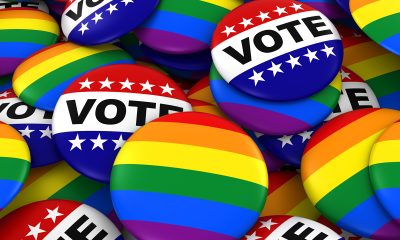World
Around the world, May 17 recognized as ‘gay day’
LGBT activists from Albania to Uganda prepare to mark day against bias
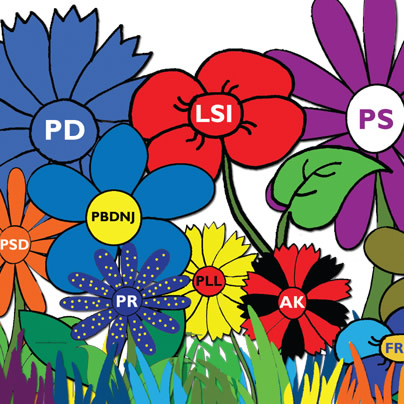
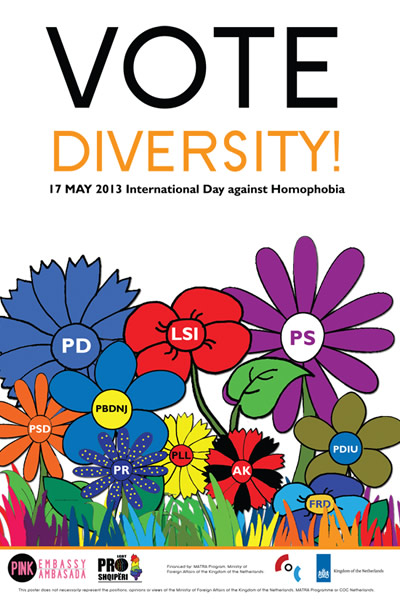
LGBT rights groups in Albania plan to commemorate IDAHO. (Photo courtesy of Amarildo Fecanji/PINK Embassy)
LGBT rights advocates in more than 100 countries around the world will commemorate the International Day Against Homophobia on May 17 with a series of marches, workshops, performances and other events.
Identoba, an LGBT advocacy group in Georgia, is planning a flash mob in front of the country’s old Parliament building in the country’s capital, Tbilisi, on May 17 during which participants will make a rainbow flag with their T-shirts. Botswanan playwright and activist Kalvin K. Kol-Kes is staging his play “BUTCHered” inspired by Mart Crowley’s “Boys in the Band” that focuses on a group of friends who are predominantly lesbian.
Cuba’s National Center for Sexual Education (CENESEX) has scheduled a series of events across Cuba to commemorate IDAHO. Nicaraguan advocacy groups will march through the streets of Managua, the country’s capital, on May 17 to demand respect and what organizers describe as “dignified treatment” for LGBT people.
Washington National Cathedral in D.C. on May 17 will host a screening of the film “God Loves Uganda” and a panel discussion on the state of LGBT rights in the East African country. Thousands of people are expected to take part in a march for LGBT rights in San Juan, Puerto Rico, on the same day.
Zaque, an LGBT youth group in the Australian city of Ballarat in the country’s Victoria state will hold a number of events to commemorate IDAHO. These include the launch of a new iPhone app.
“For the young people of Zaque, IDAHO is important because it is a day for them to stand up and be proud and say that homophobia is not OK,” Ballarat City Councilor Belinda Coates told the Washington Blade. “It’s a celebration of who they are and allows them to be leaders and educators within the community.”
The Albanian LGBT advocacy group PINK Embassy will hold its second annual diversity festival in Tirana, the country’s capital that will feature exhibits with messages and posters the group’s general manager, Amarildo Fecanji, described to the Blade as a “short resume of what has been achieved so far.”
Fecanji’s group will also host panels that will examine media coverage of LGBT-specific issues and how they factor into Albanian politics and gay youth. Pink Embassy and other human rights organizations will also stage a diversity fair in the center of Tirana.
“Slowly but steadily May 17 is coming to be recognized as the gay day,” Fecanji told the Blade when asked how he feels IDAHO bolsters his group’s advocacy efforts in the southeastern European country. “That for people is an opportunity for society to sort of come together.”
IDAHO first took place on May 17, 2005, to commemorate the World Health Organization’s decision to declassify homosexuality as a mental disorder. Organizers have subsequently added transphobia and biphobia to their mission.
This year’s IDAHO takes place against the backdrop of the recent extension of marriage rights to same-sex couples in France, New Zealand, Uruguay and several Brazilian states that include Rio de Janeiro. Gays and lesbians can also now legally tie the knot in nine U.S. states and D.C. and will soon be able to do so in Delaware and Rhode Island.
Canadian and Dutch lawmakers earlier this year approved a transgender rights bills, but anti-LGBT discrimination and violence remain pervasive throughout the world.
A report by the Latin American and Caribbean Network of Transgender Women (REDLACTRANS) released earlier this year notes 61 trans women in Colombia have been reported murdered between 2005-2011. Honduran advocate José Pepe Palacios told the Blade in February while he was in the United States that at least 89 LGBT people in the Central American country have been murdered since the 2009 coup that ousted José Manuel Zelaya.
The State Department in recent years has also spoken out against anti-LGBT violence in Jamaica, Uganda, Zimbabwe and other countries.
Identoba founder Irakli Vacharadze told the Blade violence against LGBT Georgians remains a serious concern. His group’s flash mob will last only 20 minutes because he said “it’s hard to guarantee” the security of those who will take part.
A group of men last week attacked a handful of people who protested the release of a video that showed men having sex with other men.
“This is the discourse in Georgia right now,” Vacharadze told the Blade from Tbilisi. “It’s so, so ugly that you can’t rationally, reasonably argue with that. It’s basically a fist coming in your face when you’re displaying your belongingness to the community.”
Vacharadze and other activists feel IDAHO only strengthens their advocacy efforts in spite of the threats they continue to face.
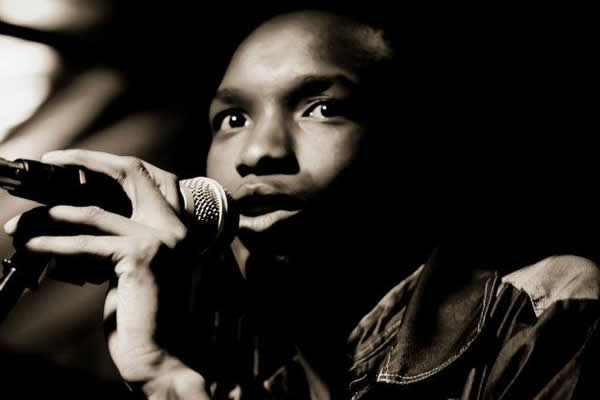
Kalvin K. Kol-Kes plans to stage a short play called “BUTCHered” to commemorate IDAHO in Botswana. (Photo courtesy of Kalvin K. Kol-Kes)
“I’m very happy with a day like May 17,” Kol-Kes told the Blade last Friday from the Botswanan capital of Gaborone. “It gives you a point when you can actively state something.”
Pedro Julio Serrano of the National Gay and Lesbian Task Force noted the march in the Puerto Rican capital on May 17 will coincide with the debate over three bills that would extend adoption rights to gays and lesbians; add sexual orientation and gender identity and expression to the island’s domestic violence laws and ban anti-LGBT discrimination in employment, housing and public accommodations.
A hearing on the adoption bill is scheduled to take place in the Puerto Rico Senate hours before the march.
“We are in a historic moment and this day will help in the education of our people about the need achieve equality,” Serrano said.
South America
Daniel Zamudio murderer’s parole request denied
Raúl López Fuentes convicted of murdering gay man in Chilean capital in 2012
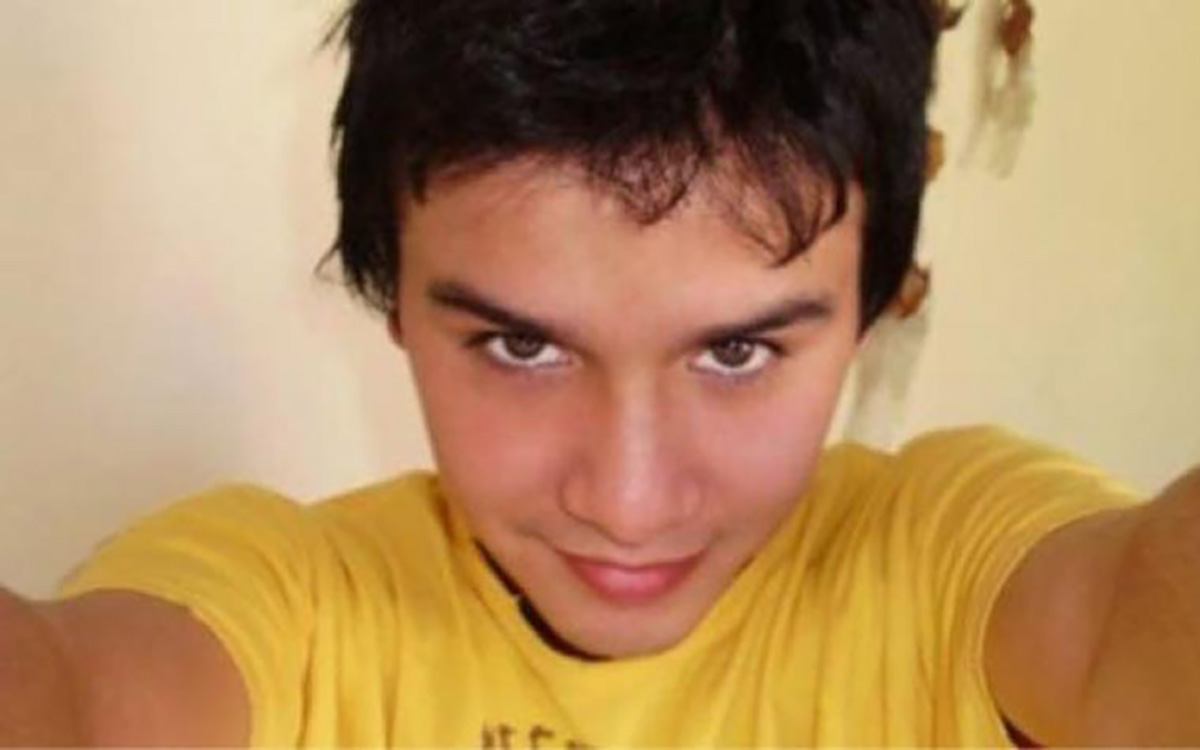
Chile’s Parole Commission on Tuesday rejected a request to allow one of the four men convicted of murdering Daniel Zamudio in 2012 to serve the remainder of his sentence outside of prison.
Raúl López Fuentes earlier this month asked the commission to release him on parole. Zamudio’s family and members of the Movement for Homosexual Integration and Liberation, a Chilean LGBTQ rights group, had gone to court to block the request.
Among the arguments put forward that influenced the commission’s decision is what Movilh categorized as his “high risk of recidivism, linked to the adherence of an antisocial behavior with a tendency to minimize his acts transgressing social norms.”
The commission pointed out that López has psychopathic traits because he is aware of the damage he did to Zamudio and his family.
“In addition, he maintains a high risk of violence, not being advisable to grant the benefit,” the report said.
Zamudio was a young Chilean man who became a symbol of the fight against homophobic violence in his country and around the world after López and three other young men with alleged ties to a neo-Nazi group beat him for several hours in Santiago’s San Borja Park on March 2, 2012. Zamudio succumbed to his injuries a few weeks later.
The attack sparked widespread outage in Chile and prompted a debate over homophobia in the country that highlighted the absence of an anti-discrimination law. Lawmakers in the months after Zamudio’s murder passed a law that bears Zamudio’s name.
López in 2013 received a 15-year prison sentence after he was convicted of killing Zamudio. Patricio Ahumada received a life sentence, while Alejandro Angulo Tapia is serving 15 years in prison. Fabían Mora Mora received a 7-year prison sentence.
Zamudio’s mother, Jacqueline Vera, exclusively told the Washington Blade after the commission rejected López’s request that “we as a family are calmer.”
“Even with my husband we were in a lot of pain at the beginning. It was like a blow of very strong emotions, so we tried to stay calm because we still had to solve the problem,” Vera said. “We had four days to solve it.”
López will have to serve the remaining three years of his sentence before his release.
“I will continue working to improve the Zamudio Law and so that this murderer does not leave prison because he is a danger to society, he does not represent repentance and people like this cannot be free,” she said. “For the same reason, we have to work so that hate crimes have life imprisonment and that is what we will concentrate on.”
European Union
Activists demand EU sanction Uganda over Anti-Homosexuality Act
Yoweri Museveni signed law on May 29, 2023
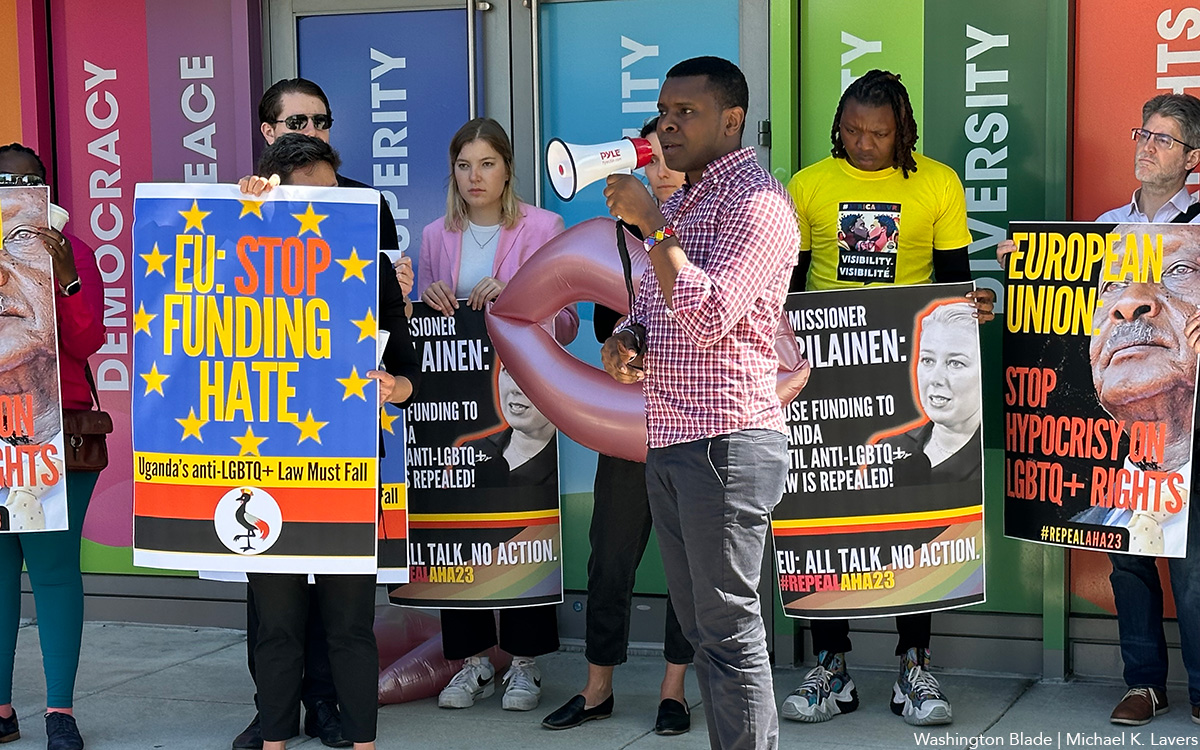
More than a dozen activists who protested in front of the European Union Delegation to the United States in D.C. on Thursday demanded the EU to sanction Uganda over the country’s Anti-Homosexuality Act.
Hillary Innocent Taylor Seguya, a Ugandan LGBTQ activist, and Global Black Gay Men Connect Executive Director Micheal Ighodaro are among those who spoke at the protest. Health GAP Executive Director Asia Russell also participated in the event that her organization organized along with GBGMC and Convening for Equality Uganda, a Ugandan LGBTQ rights group.
Ugandan President Yoweri Museveni last May signed the Anti-Homosexuality Act that, among other things, contains a death penalty provision for “aggravated homosexuality.”
The country’s Constitutional Court on April 3 refused to “nullify the Anti-Homosexuality Act in its totality.” A group of Ugandan LGBTQ activists have appealed the ruling.
A press release that Health GAP issued ahead of Thursday’s protest notes EU Commissioner for International Partnerships Jutta Urpilainen on March 6 announced more than €200 million ($212.87 million) for Uganda in support of “small business owners, young female entrepreneurs, agribusinesses as well as vital digital infrastructure projects in full Team Europe format with the European Investment Bank (EIB) and several member states.”
“These concrete initiatives will make a difference to aspiring entrepreneurs, Ugandan businesses and create jobs in multiple sectors,” said Urpilainen in a press release that announced the funds. “This is a perfect example of how Global Gateway can make a tangible difference for citizens and businesses and unlock the full potential of a partner country by working together.”
Convening for Equality Uganda on Tuesday in a letter they sent to Urpilainen asked the EU to review all funding to Uganda and “pause or reprogram any funds that go via government entities.” The protesters on Thursday also demanded European Commission President Ursula von der Leyen “to hold Ugandan President Museveni’s government accountable for this attack on human rights.”
Josep Borrell, the EU’s top diplomat, in a statement he released after Museveni signed the Anti-Homosexuality Act said the law “is contrary to international human rights law and to Uganda’s obligations under the African Charter on Human and People’s Rights, including commitments on dignity and nondiscrimination, and the prohibition of cruel, inhuman or degrading punishment.”
“The Ugandan government has an obligation to protect all of its citizens and uphold their basic rights,” said Borrell. “Failure to do so will undermine relationships with international partners.”
“The European Union will continue to engage with the Ugandan authorities and civil society to ensure that all individuals, regardless of their sexual orientation and gender identity, are treated equally, with dignity and respect,” he added.
Urpilainen last September in a letter to the European Parliament said the EU would not suspend aid to Uganda over the law.
India
Indian political parties for the first time include LGBTQ rights in election platforms
Voters will begin to cast ballots on April 19

The world’s largest democratic exercise will begin in India on April 19 as citizens begin to cast their votes in the country’s election.
This year’s election is different because national level political parties for the first time are promising to extend marriage rights to same-sex couples as part of their election platforms.
The Indian National Congress, one of India’s oldest political parties, promised after wide consultation that it would introduce a bill that would recognize civil unions between couples who are part of the LGBTQ community. The party, which has governed India for the majority of the period since independence from the U.K. in 1947, has refrained from taking a stance on laws that include Section 377, which criminalized consensual same-sex sexual relations.
Then-Health Minister Gulam Nabi Azad in 2011 when the INC was in power said homosexuality is a disease. He made the controversial comment while speaking at an HIV/AIDS conference in New Delhi, the Indian capital.
“Unfortunately, this disease has come to our country too,” said Azad. “Where a man has sex with another man, which is completely unnatural and should not happen but does.”
When the Delhi High Court was hearing the Naz Foundation case, the Home Affairs Ministry opposed the striking down of Section 377 based on its belief that homosexuality cannot be morally condoned. The INC never struck down Section 377, which criminalized homosexuality, in parliament.
A 5-judge panel on the Supreme Court on Sept. 6, 2018, decriminalized consensual same-sex sexual relations.
The Communist Party of India (Marxist) on April 4 unveiled its platform with a range of socialist commitments, including support for LGBTQ rights. Among these pledges is to amend the Transgender Persons (Protection of Rights) Act 2019 to address community concerns and ensure legal recognition and protection for same-sex couples akin to marriage.
The platform also outlined plans to introduce a bill similar to the Special Marriage Act of 1954, which allows partners to be listed as dependents and facilitating like inheritance, alimony in the event of divorce and other issues. The party further pledged to enact a comprehensive anti-discriminatory bill that would include LGBTQ people, ensure quotas in educational institutions and implement horizontal reservations in employment.
Addressing the issue of crimes against LGBTQ people, the platform promised to treat such offenses on par with crimes against heterosexuals. The platform also calls for tackling bullying, violence and harassment of gender non-conforming and LGBTQ people in educational settings, enforcing anti-hazing policies and combating hazing based on sexual orientation and gender identity.
The platform further touched issues related to transition and informed consent.
The Special Marriage Act of 1954 is a law that provides for civil unions among Indians and Indian nationals who live abroad, regardless of the religion or faith followed by either party. This law enables people from two different religious backgrounds to enter into marriage. Parliament in 2019 passed the Transgender Persons (Protection of Rights) Act that extended rights to trans people.
Brinda Karat, a former member of the Rajya Sabha, the upper house of the Indian Parliament, and leader of the Communist Party of India (Marxist), spoke with the Washington Blade and said the current government has homophobic ideas that are not acceptable to the party.
The ruling government under Prime Minister Narendra Modi is striving to secure more than 400 parliament seats in the upcoming election, aiming for a substantial majority.
Various polls conducted by Indian news organizations indicate a probable victory for the ruling Bharatiya Janata Party. In response to the BJP’s dominance, Congress and several national and regional parties have joined forces as the Indian National Developmental Inclusive Alliance.
This alliance comprises 26 opposition political parties. Despite its formation, however, there is no clear coalition strategy in place and only two parties have included LGBTQ-specific policies in their election platforms.
The Blade reached out to Congress’ spokesperson for comment, but has not received a response. The BJP also did not respond to a request for comment.
The party has yet to release its election platform.
Ankush Kumar is a reporter who has covered many stories for Washington and Los Angeles Blades from Iran, India and Singapore. He recently reported for the Daily Beast. He can be reached at [email protected]. He is on Twitter at @mohitkopinion.
-

 District of Columbia2 days ago
District of Columbia2 days agoReenactment of first gay rights picket at White House draws interest of tourists
-

 District of Columbia2 days ago
District of Columbia2 days agoNew D.C. LGBTQ+ bar Crush set to open April 19
-

 Arizona2 days ago
Arizona2 days agoAriz. governor vetoes anti-transgender, Ten Commandments bill
-

 Africa4 days ago
Africa4 days agoUgandan activists appeal ruling that upheld Anti-Homosexuality Act



